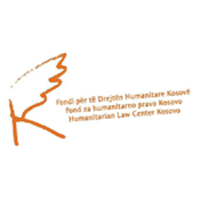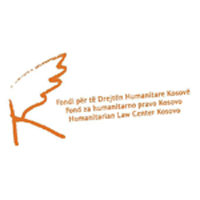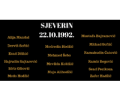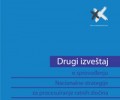HLC Kosovo: Oliver Ivanović has been sentenced to nine years of imprisonment for a war crime against civilian population
 Following a thirteen-month trial in the case the Prosecutor against Oliver Ivanović et aila,[1] the international panel of the Basic Court of Mitrovicë/Mitrovica (presided by Judge Roxana Comsa[2]) announced the judgment on 21 January 2016 finding the accused Oliver Ivanović guilty of the criminal offense of War Crimes Against Civilian Population and sentenced him to imprisonment of nine (9) years. In her brief reasoning that was on this occasion announced to the parties to the proceedings, Judge Comsa said that the Court found that Ivanović was responsible for the crime committed on 14 April 1999 in Mitrovicë/Mitrovica, in Miladin Popović Street (nowadays Ahmet Selaci Street), as well as in Put za Bajr (The Road to Bajr). As a result of the actions of Serbian paramilitary police forces, on that occasion, the following Albanians were killed: Fatmir Mustafa, Skender Paqarada, Avni Abazi and Mehmet Seferi.
Following a thirteen-month trial in the case the Prosecutor against Oliver Ivanović et aila,[1] the international panel of the Basic Court of Mitrovicë/Mitrovica (presided by Judge Roxana Comsa[2]) announced the judgment on 21 January 2016 finding the accused Oliver Ivanović guilty of the criminal offense of War Crimes Against Civilian Population and sentenced him to imprisonment of nine (9) years. In her brief reasoning that was on this occasion announced to the parties to the proceedings, Judge Comsa said that the Court found that Ivanović was responsible for the crime committed on 14 April 1999 in Mitrovicë/Mitrovica, in Miladin Popović Street (nowadays Ahmet Selaci Street), as well as in Put za Bajr (The Road to Bajr). As a result of the actions of Serbian paramilitary police forces, on that occasion, the following Albanians were killed: Fatmir Mustafa, Skender Paqarada, Avni Abazi and Mehmet Seferi.
At the same time, the accused Ivanović, as well as the accused Dragoljub Delibasić, Ilija and Nebojša Vujačić and Aleksandar Lazović were, by the same judgment, acquitted of the criminal offences of Aggravated Murder committed due to ethnic motives, which, according to the indictment, occurred during the riots of 03 February 2000 in the northern part of Mitrovicë/Mitrovica with participation of the five Defendants, led by Ivanović, as it was alleged by the Prosecution.
On 11 August 2014, the International Prosecutor filed an Indictment against Ivanović and four other suspects. In the Indictment, Ivanović was charged with the following: that on 14 April 1999, in his capacity of leader of Serbian paramilitary/police units, he incited a group of subordinates to commit war crimes against persons who did not take active part in the hostilities, as well as that he ordered the murder of nine (9) civilians, four of whom were killed. In the aforementioned Indictment, Ivanović was also charged with the following: that in his capacity of leader of a paramilitary group “the Bridge Watchers”, in co-perpetration with the accused Delibasić, on 03 February 2000 in the evening, in line with the previously agreed common plan and with direct intent, he forced the citizens of Albanian ethnicity in North Mitrovica to abandon their homes and the territory of the northern part of Mitrovica, whereby, the ultimate aim was to murder or to inflict bodily injuries to Albanians. As a result of their actions, the following persons lost their lives on this occasion: Nderim Ajeti, Nexhmije Xhaka, Sebiha Abrashi, Remzije Canhasi, Muharrem Sokoli, Selim Berisha, Nezir Voca, Shqipe Voca, Bashkim Rrukeci and Nimon Sejdiu, while the following persons sustained serious injuries: Rezarta Ajeti, Nexhmedin Ajeti, Agon Ajeti and Emine Xhaka.
According to the indictment, the actions of the accused on this occasion were endangering the lives of nine more people. Being under the command of the accused Ivanović and sharing the same intentions with Ivanović and Delibasić, the accused Nebojša and Ilija Vujačić and Aleksandar Lazović, as allaged in the indictment, carried out an attack at 3 Lola Ribara Street on 3 February 2000, when ten (10) Albanians were killed while a number of them sustained major bodily injuries the consequences of which were threatening to their lives.
The main trial opened on 18 December 2014. During the trial which lasted for a little more than a year, the Trial Panel was in session for 83 days having heard 81 witnesses – 55 prosecution witnesses and 22 defense witnesses. Two prosecution witnesses testified as anonymous witnesses. According to the decision of the Trial Panel, the identity of one of the two witnesses was not disclosed to the parties. Furthermore, four (4) prosecution witnesses testified during six (6) sessions via a video conference. These witnesses are no longer living in Kosovo. During the trial, many pieces of material evidence were proposed by the parties to the proceedings. During the evidentiary proceedings, the Trial Panel carried out a site inspection in the southern and northern part of the town.
The Trial Panel assigned an ex officio representative to the Injured Parties in order to protect their rights during the criminal proceedings.
In the reasoning that followed the announcement of the judgment, the Trial Panel emphasized that the judgment was rendered in accordance with the evidence and the law. According to this reasoning, the crime the accused Ivanović was found guilty of took place on 14 April 1999, during the armed conflict in Kosovo. The Court noted that, based on direct evidence administered during the proceedings, it was established that the accused Ivanović was at the scene, being uniformed and armed, in the company of other members of the Serbian forces and that he displayed specific behavior. According to the Court, the Defendant had been seen wearing a uniform even before the critical event, together with other Serbian military personnel. A number of witnesses saw the Defendant at the scene. Their statements are credible and convincing. The Trial Panel gave additional trust to the main prosecution witness and his claims that, at the moment when he evaded death and when he was fully concerned with the fate of his family, he was a witness of Ivanović’s presence at the crime scene, which, according to the Court’s findings gave extraordinary value to his testimony. The Court found this fact very convincing. According to the findings of the Court, Ivanović was a link in the chain and the then official machinery in north Mitrovica; however, he was not found guilty of command responsibility. Finally, the Court found that some witness statements contained certain, yet, minor discrepancies, which were not decisive for the final findings of the Court.
The Trial Panel did not give faith to the defense of the accused Ivanović or to the defense witnesses, who had tried to confirm the alibi of the accused, and who, during the proceedings, made general statements about the movements of the accused, that he was at work complying with the work obligation.
The decision of the Court in this case was based on the Code in effect at the time of the commission of the criminal offence[3] which foresees a sentence of imprisonment of 5 to 15 years for the offence the accused Ivanović was found guilty of. When imposing the sentence, the Court took into account the mitigating and aggravating circumstances. With regard to the acquittal, the Trial Panel did not find that the adduced evidence confirmed the liability of the Defendants beyond reasonable doubt.
In a separate ruling, the Trial Panel extended the measure of house detention against the accused Ivanović which had lasted since 18 September 2015, following detention on remand lasting for more than a year and a half. Pursuant to the Criminal Procedure Code, in cases when a term of imprisonment of five (5) or more years is imposed, detention on remand is foreseen.[4] Security measures against other Defendants have been terminated.
The Court’s decision wherein a term of imprisonment of nine years was imposed against the accused Ivanović is not final. Discontented parties have the right to appeal following the service of the judgment.
Based on regular monitoring of the main trial and access to official documents in this case, the HLC Kosovo finds that the main trial was conducted with extreme professionalism by the Trial Panel and that the parties to the proceedings had the opportunity to exercise all the procedural rights available to them in accordance with the law and international conventions. It is undisputed that the accused Ivanović was present at the scene on the critical day, yet, what remains unclear is his specific role, whether he was giving orders for the murders of civilians and what specific actions he took on the relevant day? Clarifications are expected in a written judgment, after which HLC Kosovo will publish a detailed analysis of the case.
[1] Codefendants: Dragoljub Delibašić, Nebojša and Ilija Vujačić, Aleksandar Lazović.
[2] Members of the Trial Panel: Judges Nuno Manuel Ferreira de Madureira and Vitor Pardal.
[3] Criminal Code of SFRY
[4] Article 367 Paragraph 2 of the CPCK foresees: If a single trial judge or trial panel imposes a sentence with imprisonment of five (5) or more years, detention on remand shall be imposed against the accused if he or she is not in detention on remand, or detention on remand shall be extended if the accused is already in detention.








